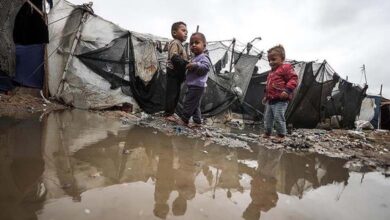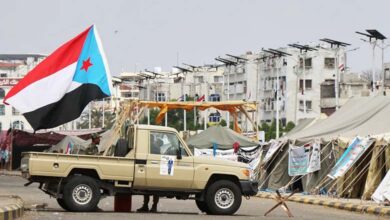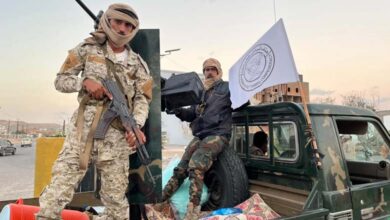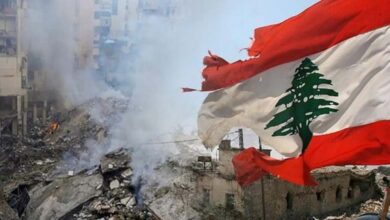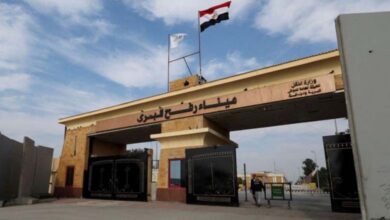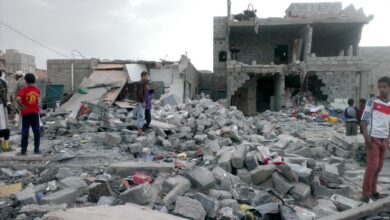Latest Developments in the Gaza War: Israel Ignores Warnings and Prepares for a Larger Incursion in Rafah
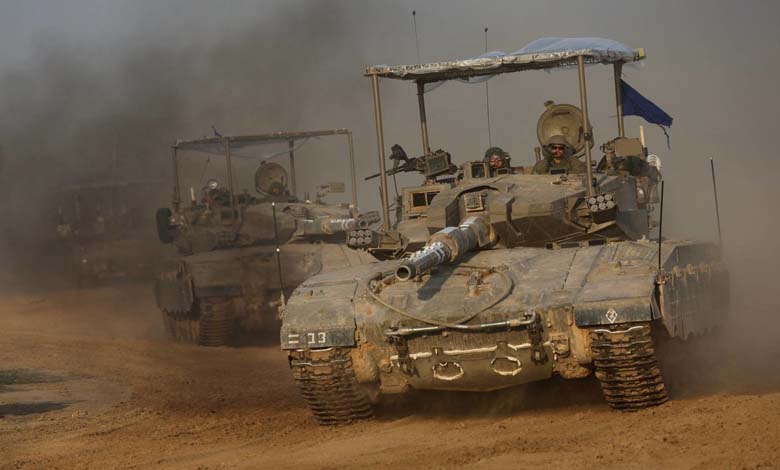
Israel ignores warnings and prepares to send more troops to Rafah, the southernmost city in the Gaza Strip, which has become the focal point of the war in the area. This announcement indicates that Israel plans a deeper incursion into Rafah despite international concerns about the threat to civilians from a large-scale invasion of the city, where over a million displaced people have sought refuge.
Israeli Defense Minister Yoav Gallant said after meeting military leaders in the Rafah area: “Hundreds of targets have already been attacked; this operation will continue.”
Ground Incursion
According to the American newspaper “New York Times,” last week, Israel described its attack as a limited military operation, but satellite images and Gallant’s comments on Thursday indicate a more significant incursion is already underway.
The newspaper adds that Rafah is the most important logistical center in the Gaza Strip and the vital gateway for most of the food, medicine, and other aid entering this area of 2.2 million inhabitants. The fighting has led to the closure of the border crossing between Rafah and Egypt and significantly reduced traffic at the Keren Shalom crossing between Rafah and Israel for some time.
The United Nations World Food Programme warned this week that “the risk of famine in Gaza has never been more imminent.”
The newspaper explains that as Israel penetrates deeper into Rafah and Israeli air raids and fighting in the heavily pressured northern Gaza continue, causing tens of thousands of other civilians to flee, questions about where the displaced people from Gaza will go and how food, medicine, and other basic necessities will enter Gaza and be distributed become increasingly crucial.
Satellite images taken on Wednesday show Israeli forces approaching the center of Rafah. Collapsed buildings and debris can be seen throughout the eastern parts of the city, contrasting with images from the previous week, which showed only limited damage.
The newspaper notes that many areas of Rafah that were filled with tents and vehicles just a week ago appeared empty by last Wednesday.
New Displacement
The newspaper reports that Raafat Abu Taimah, 62, and his family have been forced to relocate six times since the war in Gaza began. On Thursday, he found himself in his latest temporary shelter, crammed inside a tent in the battle-torn city of Khan Younis, wondering how he would feed his nine children.
Abu Taimah was a taxi driver before the war. He is among the 600,000 people the UN estimates have been displaced from Rafah and its surroundings, where Israeli airstrikes bomb the ground, and tanks penetrate deeper into urban areas.
He said: “No one has helped us here.” The tension from seven months of war has driven him to tears.
He added that he managed to find some aid in Rafah, from where he fled last week, but in Khan Younis, he feels hopeless, saying: “No one cares about all these children and women here.”
On Thursday, outside the school, a few trucks carrying humanitarian aid passed through the street. Children tried to grab what they could.
International Court of Justice Session
The newspaper explains that as criticism of Israeli military operations escalated on Thursday, South Africa urged judges of the International Court of Justice to issue an order to end the ground offensive in Rafah, saying it endangered the lives of Palestinians in the sector, exposing them to imminent destruction.
The session follows South Africa’s request last week for the court to impose more restrictions on the Israeli military campaign in Gaza. In files revealed by the court, South Africa highlighted the “irreparable harm” posed by the Israeli incursion into Rafah.
Vaughan Lowe, a British lawyer, told the court: “It is increasingly clear that Israel’s actions in Rafah are part of an endgame to completely destroy Gaza as a habitable area; this is the final step in the destruction of Gaza and its Palestinian people.”
Israel, which denies accusations of genocide, says its latest attack on eastern Rafah is a “precision operation” targeting Hamas members. Israel is expected to present its defense to the court on Friday.
In a hopeful development, the US military installed a temporary dock on Gaza’s coast on Thursday, creating an additional entry point for humanitarian aid, although the dock is still in the testing phase.
The US Central Command said in a statement Thursday morning that aid would be loaded onto trucks that would start moving to the shore “in the coming days.”
Officials said last week that the floating dock and bridge were completed, but weather conditions delayed their installation.
Insufficient Aid
US officials say the Pentagon hopes the dock operation will initially bring enough aid for about 90 trucks a day, reaching up to 150 trucks a day when operating at full capacity.
Aid agencies and UN officials said the Gaza Strip needs at least 500 to 600 trucks daily to meet its needs.


